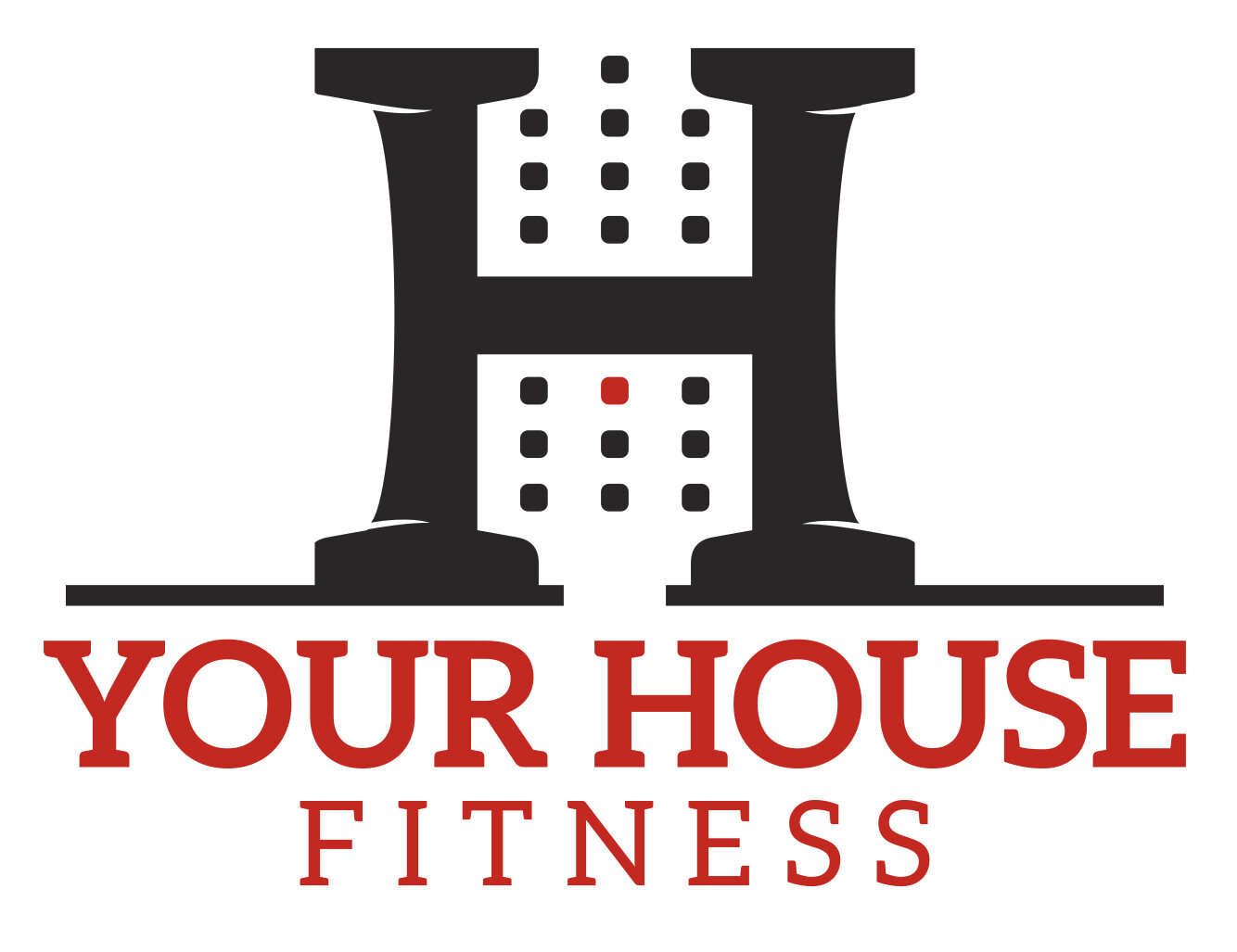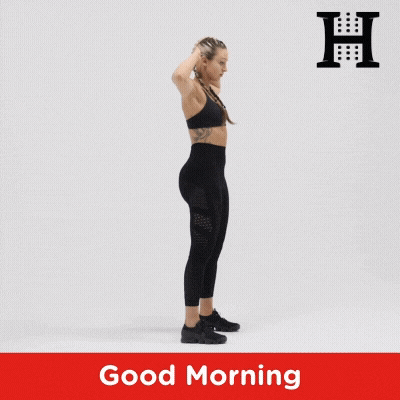Exercise Tutorial: Good Morning
Table of Contents
What Is the Good Morning Exercise
The Good Morning Exercise is a bodyweight or barbell movement that engages the core and back. The Good Morning Exercise is easy to learn and you can perform it anywhere, even if you have minimal space. As well, the Good Morning Exercise can be incorporated into various workouts, including general strength and HITT.
How to Do a Good Morning Exercise
Follow these steps to learn how to perform the Good Morning Exercise.
Stand upright with your feet hip-width apart. Place both hands behind your head. Your elbows will be pointed out to the sides.
Bend forwards at the hips by pushing your hips and butt back. Maintain a straight back. Continue to lower the torso until it is about parallel to the ground.
Return to the starting position by pushing the hips forwards and bringing the torso to an upright position. Repeat the movement.
You have now learned how to complete the Good Morning Exercise!
Good Morning Exercise Form
There are some key points to remember as you perform the Good Morning Exercise that will reduce your risk of injury and ensure that you are completing the Good Morning Exercise correctly. When performing the Good Morning Exercise, be sure to,
Maintain a straight back at all times.
Brace the core as you perform the Good Morning Exercise.
Keep the shoulders down and back.
Keep your feet firmly planted on the ground.
Good Morning Exercise Benefits
There are a few key benefits of including the Good Morning Exercise in your exercise routine. Some of the most important benefits of the Good Morning Exercise include:
Engages the muscles in the Posterior Chain.
Helps to master the hinge movement.
Transferable to other exercises such as the deadlift.
Strengthens the back and core.
May progressions and variations of the Good Morning Exercise.
Good Morning Exercise Muscles Worked
The Good Morning Exercise engages a few different muscles throughout the body. Specifically, the Good Morning Exercise will work the:
Good Morning Exercise Variations
As previously mentioned, one of the best benefits of the Good Morning Exercise is that there are many variations of the movement. Here are a few variations of the Good Morning Exercise below.
Good Morning with Dumbbells
The Good Morning Exercise with Dumbbells is a simple progression from the bodyweight version. Hold a dumbbell of your desired weight tight against the chest as you perform the Good Morning Exercise as usual. You could also use a plate instead of a dumbbell.
Good Morning with Barbell
The Good Morning Exercise with Barbell involves the shifting of weight from the back of the body to the front of the body. The barbell is placed on the shoulders, just as if you were doing a barbell squat. Be careful to not overload the barbell as you can injure you back! Start low and build your load as you progress.
Good Morning with Resistance Band
The Good Morning Exercise with Resistance Band is another versatile variation of the Good Morning Exercise. Select the weight of the resistance band you would like to use. Step on the resistance band with your feet hip-width apart and loop the remaining end of the resistance band around your neck. Hold the resistance band at about shoulder height as you perform the Good Morning Exercise as usual.
Good Morning Exercise Alternatives
There are many exercise alternatives that can replace the Good Morning Exercise. Often, this is because the user doesn't feel comfortable with the execution of the movement. Other reasons include lower back pain, lack of core muscle engagement, etc.
Here are the alternatives to the Good Morning Exercise:



